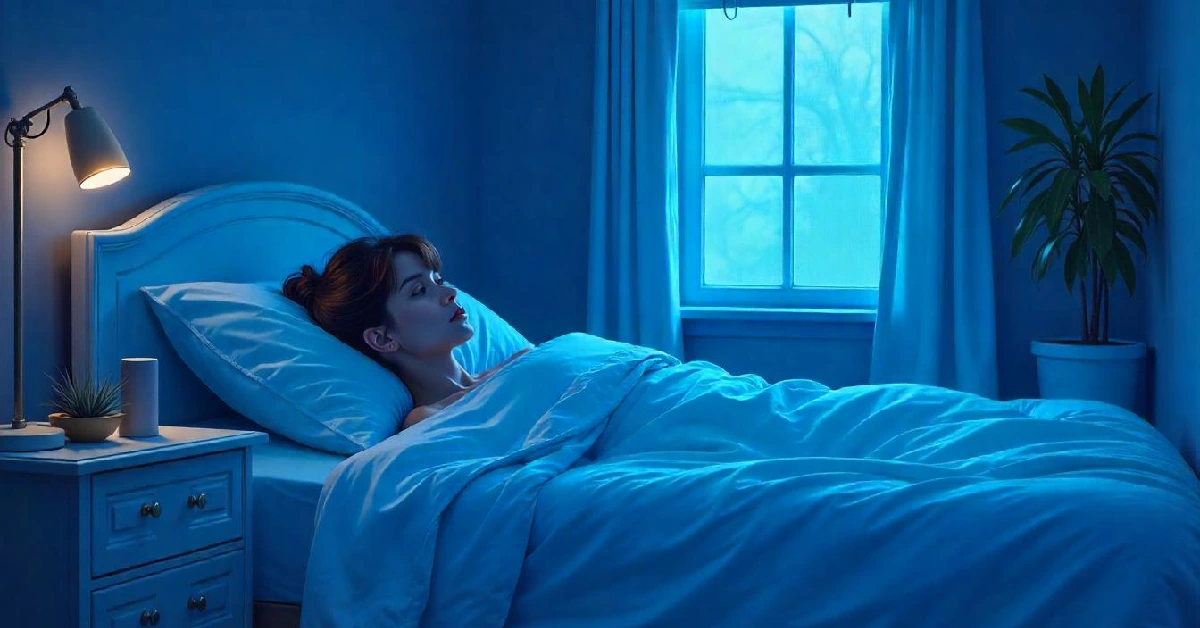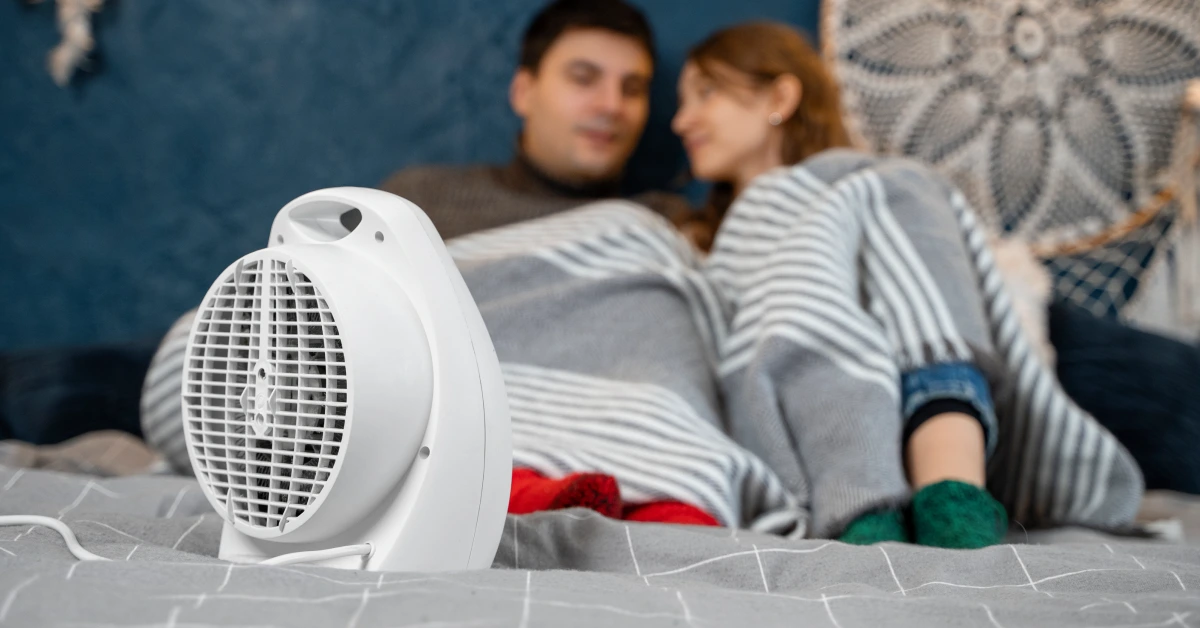You’ve tried counting sheep, drinking chamomile tea, and buying that expensive pillow your coworker swore by. Yet here you are at 2 AM, staring at the ceiling like it owes you money.
The truth? Most sleep advice is either outdated folklore or marketed fluff designed to sell products. What you need are 7 sleep tips that actually work—backed by real science, not wishful thinking.
These aren’t miracle cures or complex rituals. They’re practical changes you can make tonight that address how your body naturally prepares for sleep. Let’s cut through the noise and get you sleeping better.
Wake Up at the Same Time Every Day (Yes, Even Weekends)
Your body runs on over 200 internal clocks that control everything from hormone production to body temperature. When you wake up at different times, you’re essentially giving your brain mixed signals about when it should prepare for sleep.

Sleep experts consistently identify regular wake times as the single most powerful intervention for better sleep quality. Your circadian rhythm thrives on predictability, not flexibility.
The hardest part? Skipping those weekend sleep-ins when you stayed up late Friday night. But here’s the payoff: most people see noticeable improvements within one week of consistent wake times.
Ditch the snooze button completely. Those extra nine minutes provide zero restorative value and disrupt your natural waking process. Move your alarm across the room if you have to—whatever forces you to actually get up.
Your body will start producing melatonin at the right time once it learns your schedule. Think of it as training your internal pharmacy to work on your terms.
Cool Your Bedroom to 65-68°F
Your core body temperature naturally drops as bedtime approaches—it’s one of the strongest biological signals that sleep is coming. A cool bedroom supports this natural process instead of fighting against it.

Research shows that overly warm rooms disrupt both deep sleep and REM stages while increasing nighttime awakenings. You’re not just uncomfortable; you’re biologically wired to stay alert in heat.
The sweet spot sits between 65-68°F for most people. Yes, your heating bill might increase slightly, but quality sleep pays dividends in energy, mood, and productivity.
Here’s a counterintuitive trick: warm your feet while cooling the room. Blood flow to your extremities signals your brain that it’s time to sleep. Wear socks or use a heating pad on your feet only.
Your bedroom should feel like a cool cave, not a tropical resort. Invest in breathable sheets and consider a fan for air circulation even in winter.
Create Complete Darkness
Even small amounts of light can trigger your brain to shift into lighter sleep stages or wake up entirely. Your ancestors didn’t have streetlights, digital clocks, or phone notifications disrupting their rest.
Light management has gained renewed attention as researchers understand how sensitive our circadian rhythms are to illumination. Complete darkness supports natural melatonin production throughout the night.
Blackout curtains are your first line of defense. Cover or remove electronic displays, including that bright cable box clock. Your bedroom should be dark enough that you can’t see your hand in front of your face.
If you need to navigate at night, use red light only. Red wavelengths cause minimal circadian disruption compared to white or blue light from regular bulbs.
Consider an eye mask as backup protection. Some people find them uncomfortable initially, but they’re incredibly effective for shift workers or anyone dealing with external light sources.
Start Your Wind-Down Routine One Hour Before Bed
Your brain doesn’t have an on-off switch for sleep. It needs time to transition from the day’s mental activity to rest mode. Rushing from work emails to bed rarely works.
Sleep specialists recommend beginning calm activities at least 60 minutes before your target sleep time. This creates a psychological bridge between wakefulness and sleep readiness.
Choose activities that genuinely relax you: reading physical books, gentle stretching, warm baths, or meditation. Avoid anything that requires problem-solving or creates emotional stimulation.
Progressive muscle relaxation works particularly well. Start with your toes, tense each muscle group for five seconds, then release completely. Work your way up through your entire body.
A warm bath 1-2 hours before bed creates the perfect temperature drop when you get out. Your body temperature falls rapidly in cool air, triggering natural sleepiness signals.
Put Away All Screens 1-2 Hours Before Sleep
Blue light from phones, tablets, and computers directly suppresses melatonin production. Your brain interprets this light as a signal to stay alert and awake, regardless of how tired you feel.
The physiological impact goes beyond just falling asleep. Evening screen exposure disrupts your overall sleep architecture, potentially reducing restorative deep sleep and REM stages throughout the night.
Blue light blocking glasses provide some protection if you absolutely must use devices. But complete avoidance remains the gold standard for optimal sleep preparation.
Replace screen time with activities that support sleep: listening to podcasts, reading fiction, or practicing relaxation techniques. Your evening entertainment doesn’t have to involve glowing rectangles.
If you use your phone as an alarm, switch to a traditional alarm clock. Keep your phone in another room entirely to avoid the temptation for “quick checks.”
Stop Consuming Caffeine 8+ Hours Before Bedtime
Caffeine has a half-life of 5-7 hours, meaning significant amounts remain in your system long after you feel the initial energy boost. That afternoon coffee at 3 PM is still affecting your sleep at 11 PM.
Recent research indicates that late caffeine consumption can reduce total sleep time by 45 minutes and decrease sleep efficiency by 7%. Those numbers add up quickly over time.
The 8-hour rule provides a safety buffer for most people. If you normally sleep at 11 PM, your last caffeine should be consumed before 3 PM maximum.
This includes hidden sources: chocolate, green tea, some medications, and energy drinks. Read labels carefully, especially for supplements that might contain caffeine extracts.
Some people metabolize caffeine faster than others. Pay attention to your individual response and adjust accordingly. You might need a 10-12 hour window for optimal sleep quality.
Exercise Regularly, But Time It Right
Regular physical activity improves both sleep onset and sleep depth by supporting natural circadian rhythm regulation. Exercise also helps manage stress and anxiety that often interfere with quality rest.
The timing matters significantly. Vigorous exercise too close to bedtime increases alertness and core body temperature, making it harder to fall asleep despite physical tiredness.
Complete intense workouts at least 3-4 hours before your target bedtime. This gives your body time to cool down and transition from the energized state exercise creates.
Morning exercise provides additional benefits beyond sleep quality. Natural light exposure during outdoor activities helps regulate your circadian rhythm and supports healthy hormone production throughout the day.
Gentle activities like stretching or yoga can actually be beneficial closer to bedtime. These promote relaxation without the stimulating effects of cardiovascular or strength training.
Your Sleep Transformation Starts Tonight
These 7 sleep tips that actually work address the core mechanisms your body uses to prepare for and maintain quality rest. You don’t need expensive gadgets, complicated routines, or perfect conditions.
Start with one or two changes that feel most manageable for your current situation. Consistency beats perfection every time when it comes to sleep improvement.
Your body wants to sleep well—it’s biologically programmed for it. These strategies simply remove the obstacles you’ve unknowingly placed in the way. Sweet dreams are closer than you think.
Which tip will you try first tonight? Your future well-rested self is counting on you to take action.






